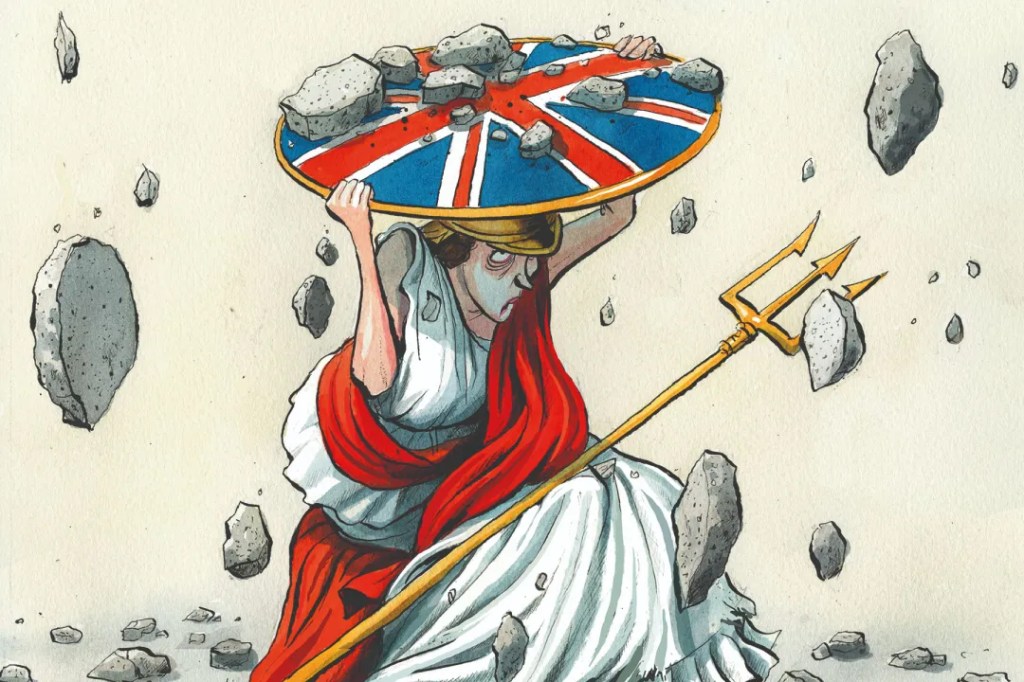Spinning a line
Sir: Roger Alton is too enthusiastic about the Hundred tournament (Sport, 24 August) – I can’t recall another sport that has so successfully alienated its entire support base. Before the season ends, I encourage Roger to watch his local cricket team and ask for their thoughts about the Hundred. He will find that most are terribly unhappy. While it has attracted a few big names in the men’s, we have no Indian powerhouses and few Australian heavyweights; other franchises round the world are, simply put, outcompeting us. Overseas investment will inevitably increase the number of teams and widen the window of play into most of July, similar to the length of the Indian Premier League. The T20 Blast, the County Championship and the often eschewed One Day Cup will all continue to suffer. Hard though it already is, the months between April and September cannot feasibly tolerate four different domestic formats if the length of the Hundred expands. Worse still, Test cricket would be on an existential footing. To accommodate the Hundred’s expansion, which of the three other formats does Roger Alton advocate abolishing?
Henry Bateson
Whittingham, Northumberland
Bowled over
Sir: I commend Roger Alton for his excellent (and surprisingly brave) article on the Hundred cricket tournament. By any measure, it has been a huge success, yet it has failed to receive the credit it justly deserves for bringing families, young people and especially girls to cricket grounds in great numbers. The inconvenient truth for many cricket journalists and so-called supporters of the sport means they have simply refused to acknowledge the Hundred’s achievements. My 15-year-old daughter and I are both County members of Surrey and attend more Hundred games each season than any other competition. The schedule, format, atmosphere and especially the combination of women and men’s games at every match just works. All credit to Roger for setting the record straight.
Paul Jackson
Sanderstead, South Croydon
Game plan
Sir: Freddy Gray claims the decision by Democratic leaders to hold the first US presidential debate in June was a stroke of accidental genius (‘Puffed up’, 24 August). Genius perhaps, but I doubt it was accidental. Over the past 64 years the televised presidential debates have never been held before late September, so the idea that this year’s three-month advance wasn’t deliberate is surely fanciful. It was clearly designed to ‘stress test’ Joe Biden in good time to replace him on the ticket before the Chicago convention.
Adrian Fogarty
London W4
Dead right
Sir: Melanie McDonagh is correct – despite personalised differences, what contemporary humanist funerals have in common is a determination to deflect attention away from the reality of death (‘Exit strategy’, 24 August). It starts with the idea of the ‘celebration of life’ – a sort of enhanced CV – and continues with the unrelenting upbeat nature of the tributes. According to the secular celebrant, the person lives on in our hearts. It’s hard to understand why this is comforting. It was Woody Allen who said he didn’t want to live on in someone’s heart but in his own apartment.
In contrast, the religious funeral liturgy has room for all emotions: grief at the loss, sorrow for flaws and shortcomings, but also gratitude for all that was good in the life now lived. Above all, the religious funeral is able to look forward as well as back.
The Revd Dr Alan Billings
Sheffield
Pieces of work
Sir: Luke McShane (‘Game theory’, 24 August) suggests it is irrelevant to note that Ian Brady and Lee Harvey Oswald were, among other things, keen chess players. I’m not so sure. Two more chess-playing wrong ’uns are/were Anders Breivik, the Norwegian neo-Nazi terrorist, and William Joyce, aka Lord Haw-Haw, who was a Nazi full stop. When Joyce was awaiting execution for treason in Wandsworth prison, he would play every day with the guards and the prison chaplain. He was obsessed with chess, but could only win when playing black. I think that explains a lot.
Nigel Farndale
Liss, Hampshire
Bread winners
Sir: We Scots, on whom Rod Liddle has been known occasionally to comment with a degree of unfounded disdain, would probably agree with him that ‘what bread we eat has been dictated by middle-class snobbery for the last 300 years’ (‘The yeast of our problems’, 24 August). That was certainly the case when I was growing up in Scotland in the 1950s, when anyone speaking with a posh accent – such as the renowned ladies of Morningside in Edinburgh – was said to talk ‘pan loaf’, since the local Co-ops charged more for such refined bread baked in tins than for the cheaper but (in my opinion) far better plain loaves. Such amusing insults did not stop the aspirational in our street buying pan loaf bread from the daily horse-drawn Dysart Co-op van. Sadly, the world has changed and so has bread, reduced to sliced homogeneity.
Dr Alan Rodger
Glasgow
Sparks fly
Sir: I am rather surprised that Christopher Howse, in his interesting article on matchboxes (‘Notes on…’, 24 August), did not mention Admiral Muspratt in Evelyn Waugh’s Brideshead Revisited. It was their mutual love of matchboxes that led the Earl of Brideshead to marry Beryl, the Admiral’s widow.
Bob Hands
Dorset







Comments